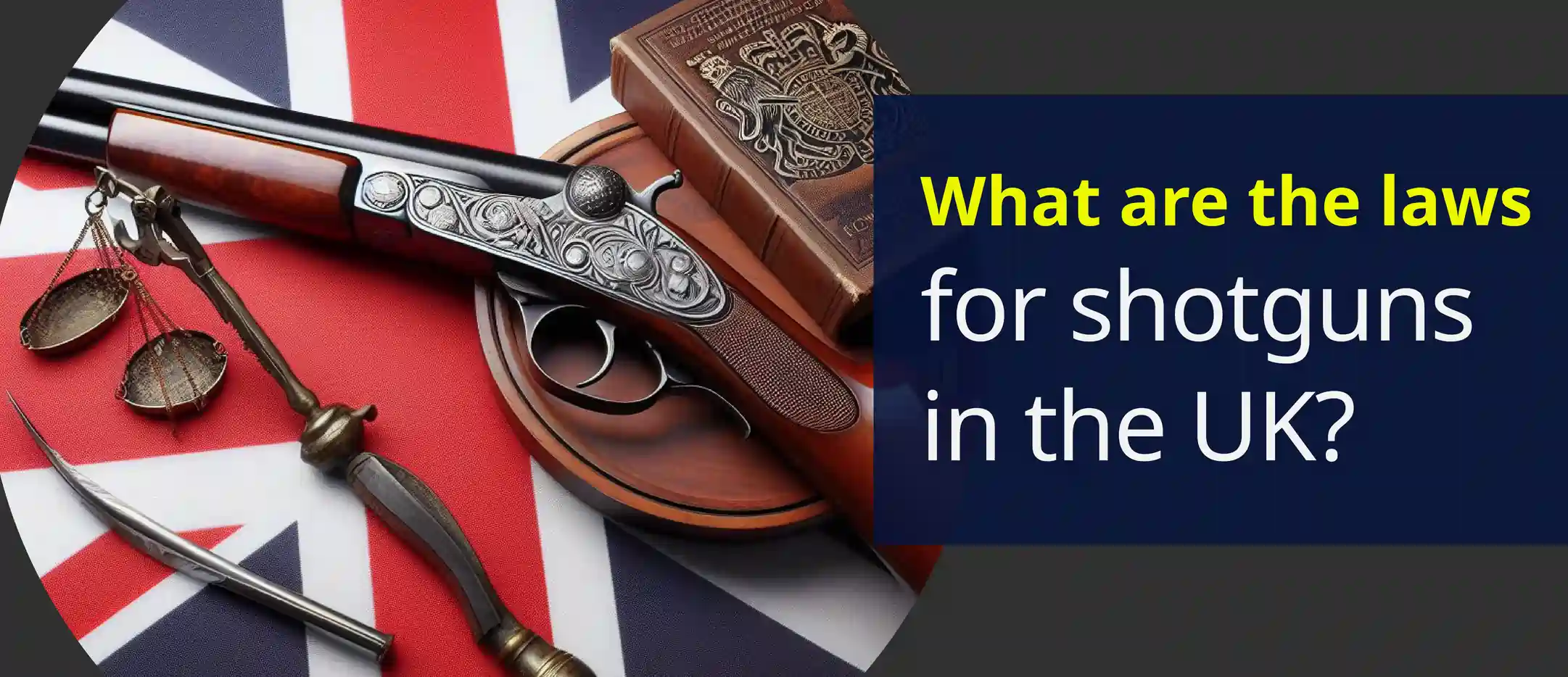What are the laws for shotguns in the UK?
26-Jul-2024

Mark Eves
The United Kingdom has some of the most stringent gun laws in the world, and shotguns are subject to their own specific set of regulations. Whether you’re a seasoned shooter, a newcomer to the sport, or simply curious about the legislative landscape, understanding the laws governing shotgun ownership and use in the UK is essential. In this blog post, we'll explore the intricate framework of shotgun legislation in the UK.
The firearms act: A two-tiered system
UK shotgun laws operate under a two-tiered system laid out by the Firearms Act 1968 and its subsequent amendments. This act distinguishes between a 'Shotgun Certificate' (SGC) and a 'Firearm Certificate' (FAC). Here’s what sets them apart:
Shotgun certificate (SGC)
An SGC is required for a shotgun that has a barrel length of at least 24 inches and can hold no more than three cartridges, with one in the chamber and two in the magazine. The criteria for obtaining an SGC are somewhat less strict compared to an FAC. Applicants must be at least 18 years of age and are assessed based on specific criteria, including:
- No criminal record suggesting they are prohibited from holding a certificate.
- Not being a danger to public safety or peace.
- Having a secure location for the storage of the shotgun to prevent unauthorised access.
Firearm certificate (FAC)
Shotguns that don’t meet the criteria of the SGC—such as those with a larger capacity or shorter barrels—are classified under Section 1 firearms and require an FAC. This certificate demands a more rigorous application process, wherein the applicant must provide a good reason for each weapon and its ammunition.
Safe storage and inspection
A paramount aspect of shotgun ownership in the UK is the requirement for safe storage. Owners must have a gun safe that meets police-approved standards, and local police forces have the authority to inspect storage facilities to ensure compliance.
Transfers, sales, and inheritance
The transfer or sale of a shotgun is tightly regulated. Both buyer and seller must hold valid certificates, and the transaction must be reported to the police. In the case of inheritance, a person may inherit a shotgun but must apply for the proper certification to legally retain it. Platforms like Rightgun.uk can help in producing the correct paperwork ensuring you do not fall foul of any issues.
Travel and transport
When transporting a shotgun, it must be unloaded and, ideally, disassembled or covered in a gun slip. If left unattended in a vehicle, the shotgun should be out of sight, preferably locked in the boot or a secure container.
Usage restrictions
The use of a shotgun is limited to permitted activities, such as clay pigeon shooting, hunting, and pest control on private land. Using a shotgun for self-defence is not considered a valid reason for ownership in the UK.
Recent amendments
It's important to note that UK shotgun laws are subject to change. For instance, following concerns about public safety, recent amendments have introduced tighter controls on the ownership of certain high-capacity shotguns.
Conclusion
Navigating shotgun laws in the UK requires a commitment to understanding and adhering to strict regulatory standards. For those interested in shotgun sports, compliance with these laws ensures the continued enjoyment and preservation of shooting activities. Whether you're involved in the field for sport, occupation, or heritage, respecting and upholding these laws is paramount for every responsible shotgun owner in the UK.
Remember, this is only a broad overview, and prospective shotgun owners should always seek the most current information from official sources or legal experts. Knowing the law is not just a responsibility—it's a cornerstone of safe and ethical participation in the world of shotgun sports.
Must read:
